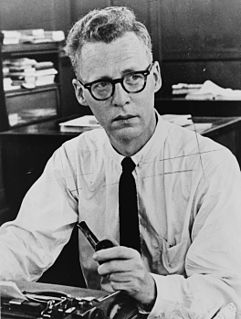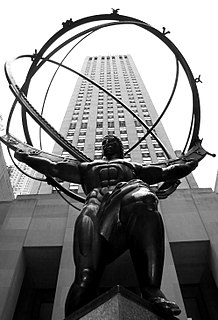A Quote by John Stuart Mill
All errors which a man is likely to commit against advice are far outweighed by the evil of allowing others to constrain him for his good.
Related Quotes
So long as men desire to live together, no man may initiate the use of physical force against others. . . . When a man attempts to deal with me by force, I answer him by force. It is only as retaliation that force may be used and only against the man who starts its use. No, I do not share his evil or sink to his concept of morality: I merely grant him his choice, destruction, the only destruction he had the right to choose: his own.
A man who is wrathful with us is a sick man; we must apply a plaster to his heart - love; we must treat him kindly, speak to him gently, lovingly. And if there is not deeply-rooted malice against us within him, but only a temporary fit of anger, you will see how his heart, or his malice, will melt away through your kindness and love - how good will conquer evil. A Christian must always be kind, gracious, and wise in order to conquer evil by good.
One man envies the success in life of another, and hates him in secret; nor is he willing to give him good advice when he is consulted, except it be by some wonderful effort of good feeling, and there are, alas, few such men in the world. A real friend, on the other hand, exults in his friend?s happiness, rejoices in all his joys, and is ready to afford him the best advice.
Some souls think that the Holy Spirit is very far away, far, far, up above. Actually he is, we might say, the divine Person who is most closely present to the creature. He accompanies him everywhere. He penetrates him with himself. He calls him, he protects him. He makes of him his living temple. He defends him. He helps him. He guards him from all his enemies. He is closer to him than his own soul. All the good a soul accomplishes, it carries out under his inspiration, in his light, by his grace and his help.
How much reverence has a noble man for his enemies!--and such reverence is a bridge to love.--For he desires his enemy for himself, as his mark of distinction; he can endure no other enemy than one in whom there is nothing to despise and very much to honor! In contrast to this, picture "the enemy" as the man of ressentiment conceives him--and here precisely is his deed, his creation: he has conceived "the evil enemy," "the Evil One," and this in fact is his basic concept, from which he then evolves, as an afterthought and pendant, a "good one"--himself!
For the first time in history, the rational and the good are fully armed in the battle against evil. Here we finally find the answer to our paradox; now we can understand the nature of the social power held by evil. Ultimately, the evil, the irrational, truly has no power. The evil men’s control of morality is transient; it lives on borrowed time made possible only by the errors of the good. In time, as more honest men grasp the truth, evil’s stranglehold will be easily broken.
Capitalism demands the best of every man - his rationality - and rewards him accordingly. It leaves every man free to choose the work he likes, to specialize in it, to trade his product for the products of others, and to go as far on the road of achievement as his ability and ambition will carry him.





































